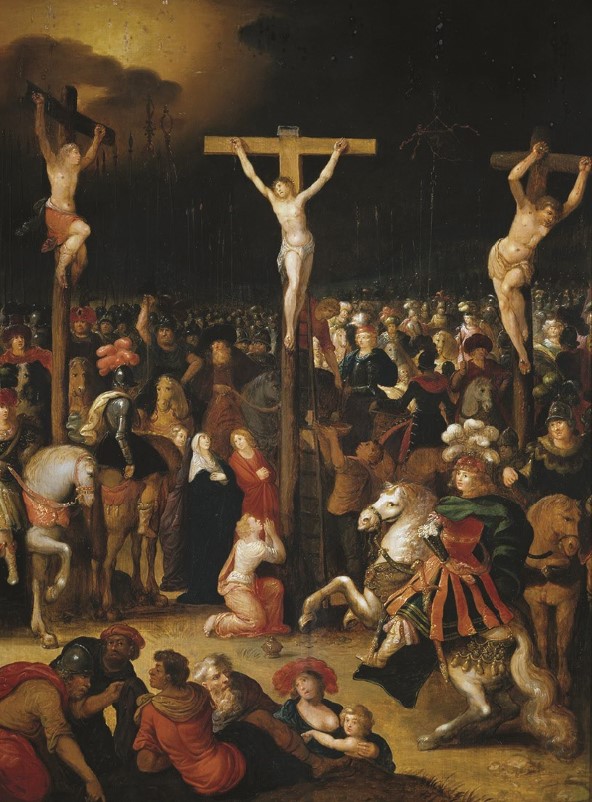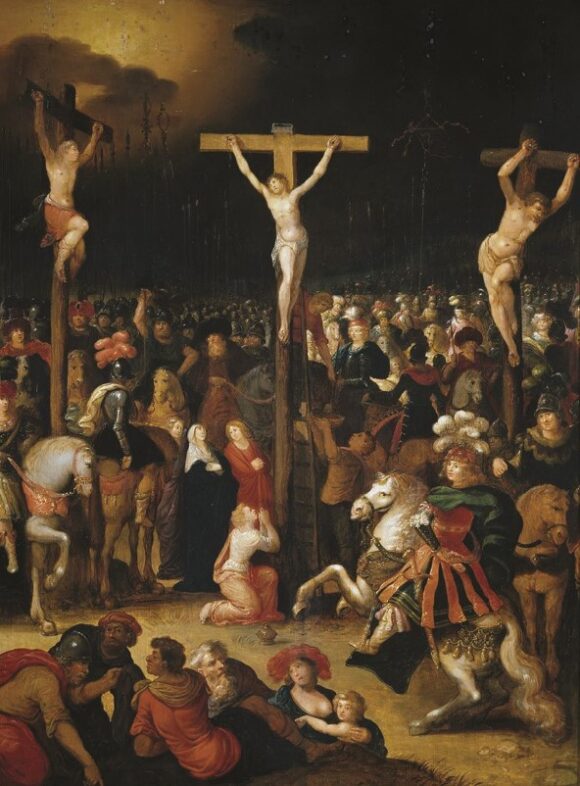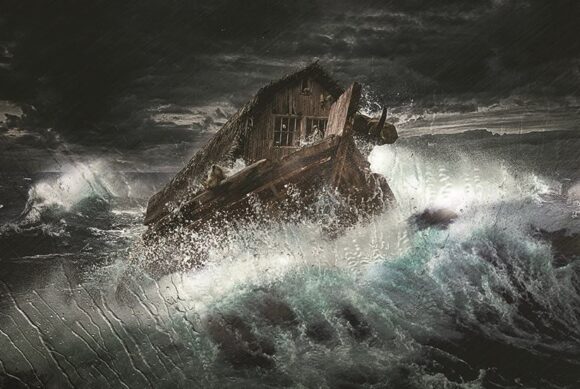IT’S A GOOD QUESTION, and one most people ask when they first come into contact with Bible believers. The idea that someone sacrificed themselves for others is a noble one, yet rather uncomfortable at the same time. After all, we might reason, a religion built on the idea of human sacrifice—that’s a bit macabre.
One reason for Jesus’ death is actually quite straightforward. It was that his words and actions antagonised the religious leaders of the day. His total honesty, coupled with his ability to be morally perfect in his actions, made them mad with envy: ‘It was out of envy that the chief priests had delivered him up’ (Mark 15:10).
This all happened because he had shown up the hypocrisy of their religious observances, simply by being the one who observed religion in the right way—that is, motivated by love: He said to them, “Which one of you who has a sheep, if it falls into a pit on the Sabbath, will not take hold of it and lift it out? Of how much more value is a man than a sheep! So it is lawful to do good on the Sabbath.” Then he said to the man, “Stretch out your hand.” And the man stretched it out, and it was restored, healthy like the other. But the Pharisees went out and conspired against him, how to destroy him (Matthew 12:11–14).
Imagine that! A man comes into your midst, observes your religion perfectly, shows you how to do it, and in the process demonstrates God’s power… and all you can do is get jealous and plot to kill him!
But this is what human nature is like, isn’t it? We get jealous. We get envious of others’ success. Especially if they do something we claim to be able to do, but can’t.
So that’s why Jesus died. Quite simply, he was killed because of human nature. It was the envy and hate within the human rulers that condemned him to death, even though he didn’t deserve to die.
In God’s Purpose
Now look at it from God’s point of view for a moment. You’ve created a world full of humans. The minute you leave them to it, they start to fight, murder, and practise all kinds of evil:
The Lord saw that the wickedness of man was great in the earth, and that every intention of the thoughts of his heart was only evil continually. And the Lord was sorry that he had made man on the earth, and it grieved him to his heart (Genesis 6:5–6).
So God had to take the heart-breaking step of destroying mankind by a flood, all except Noah and his family: ‘So the Lord said, “I will blot out man whom I have created from the face of the land, man and animals and creeping things and birds of the heavens, for I am sorry that I have made them.” But Noah found favour in the eyes of the Lord’ (Genesis 6:7–8).
Then He waited two and a half thousand years, before finally He sent His own Son —a man who was good, and who totally overcame all his urges to do evil.
Yet the religious leaders of the nation were the ones who killed him! This was his assessment of them: You also outwardly appear righteous to others, but within you are full of hypocrisy and lawlessness (Matthew 23:28).
By killing Jesus, the scribes and Pharisees broke the Law they were so keen to uphold. Actually the Law had never been intended to make people perfect, but to show them they were sinners and to prepare them for the coming of Jesus (Galatians 3:19–29 explains). For he alone would be able to make forgiveness possible once and for all, by cancelling our failures. His sacrificial death had this effect:
Cancelling the record of debt that stood against us with its legal demands. This he set aside, nailing it to the cross. He disarmed the rulers and authorities and put them to open shame, by triumphing over them in him (Colossians 2:14–15).
Jesus fulfilled the Law, and replaced it with a new law—the Law of Christ—which gives us all the opportunity to have a new relationship with God, and have our sins forgiven. The preceding verse explains:
In him also you were… buried with him in baptism, in which you were also raised with him through faith in the powerful working of God, who raised him from the dead. And you, who were dead in your trespasses and the uncircumcision of your flesh, God made alive together with him, having forgiven us all our trespasses (Colossians 2:11–13).
If we are baptised into Christ (by being dipped under water), then we symbolically die with him and are symbollically raised with him to a new life. How? It’s quite simple. Jesus was raised from death and, like him, we come out of the water with a new relationship with God, our sins foregiven and Jesus as our friend and Lord.
Greater love has no one than this, that someone lay down his life for his friends. You are my friends if you do what I command you (John 15:13–14).
Robin de Jongh




